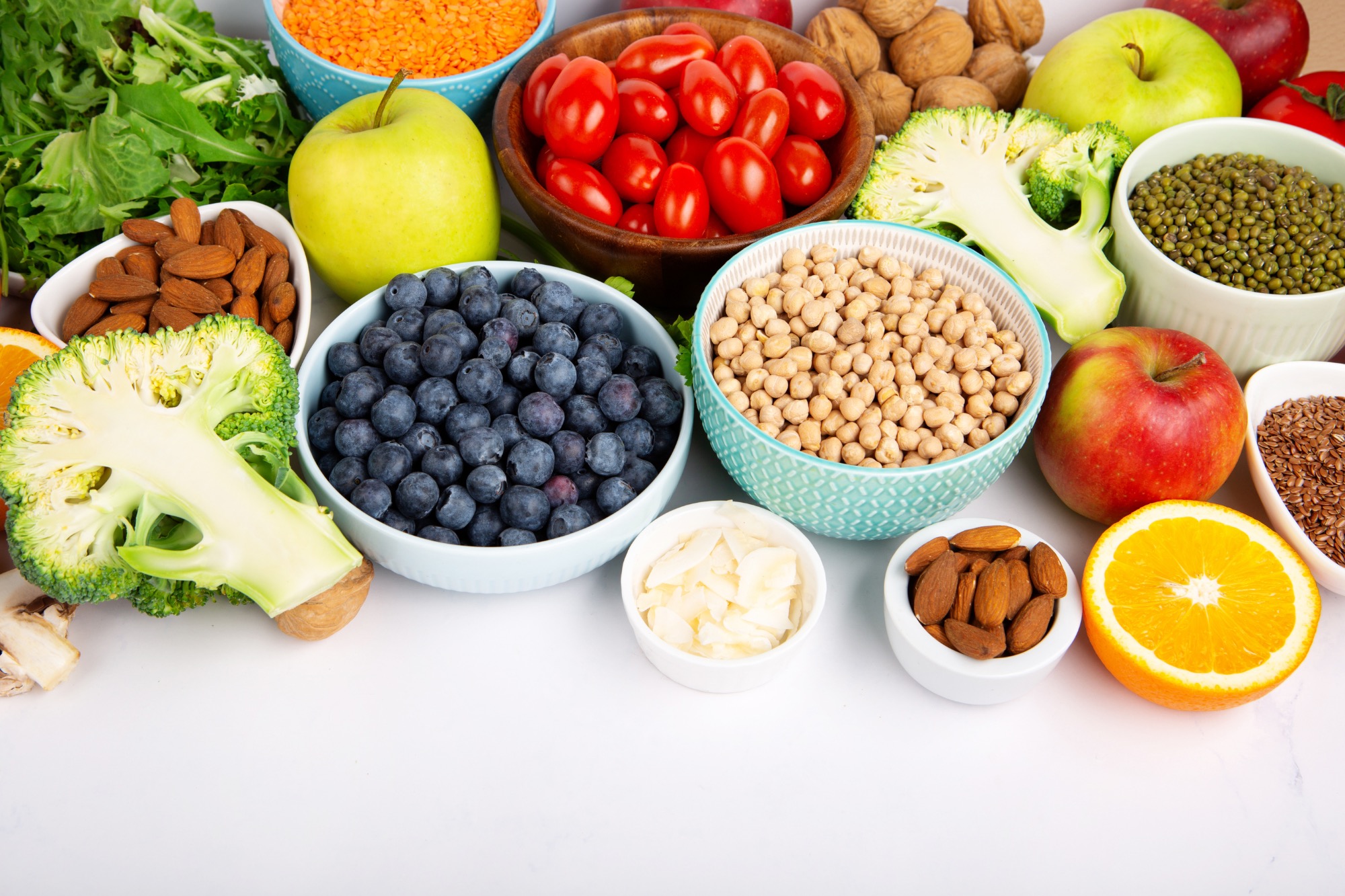Vegan & Vegetarian Diets for Fertility Q&A

Following her webinar on vegan and vegetarian diets, Dara Godfrey, MS, RD, registered dietician at RMA of New York, responded to attendees’ questions on these two lifestyles and whether they can support fertility. Her responses to these questions are below:
- How many grams of protein should a vegetarian get in a day?
Vegetarians often need slightly more protein compared to those who eat animal products. This is because many plant-based proteins (with a few exceptions like soy and quinoa) are incomplete proteins—meaning they lack one or more essential amino acids and may be more poorly absorbed. By consuming a variety of plant proteins, vegetarians can still achieve a complete amino acid profile, but they may need to eat a bit more to ensure they’re meeting their needs. I typically suggest getting in at least 1gram of protein per kilogram of body weight (or about 0.45 grams per pound).
Vegetarians and Vegans should aim for about 1.0-1.2 grams of protein per kilogram of body weight. This can vary depending on individual health needs, activity level, and goals.
- How can I find out my B12 levels?
Vitamin B12 can be tested via a blood test and a complete blood count (CBC) can give some insight into B12 levels.
- Other than eggs, are there any specific fruits/veg that are recommended to get the best vitamins/minerals needed for fertility?
Eating a varied whole foods diet is an important way to help ensure someone is getting a combination of the vitamins and minerals that are critical for fertility. Aside from eating a wide array of fruits and vegetable, choosing varied protein sources, healthy fats and complex carbohydrates can help maximize one’s chances that they are getting in nutrient-dense foods. But some of my personal favorite fruits and vegetables that are nutrient dense include broccoli, asparagus, collard greens, orange peppers, pomegranates, kiwis and raspberries.
- What can vegans eat for B12 if one can only find that in animal sources? How about zinc?
Vitamin B12 is naturally found in animal products. Vegetarians and vegans can get B12 in fortified products like some plant based milks, some fortified breakfast cereals or nutritional yeast. Including a vitamin B12 supplement is often warranted.
Zinc is abundant in animal foods but it can be found in some non animal products such as nuts and seeds (like pumpkin seeds), beans (like chickpeas). whole grains (like quinoa) and some fortified breakfast cereals But they are not as well absorbed from vegan sources as opposed to animal sources. A zinc supplement may be warranted especially if it’s not found in your prenatal vitamin.
- Is there a B12/choline supplement you recommend for pescatarian or at least amount guidelines.
Supplements should be customized from person to person, but if someone is interested in supplementation as a vegan or vegetarian, it may be helpful to take upwards of 250mcg of vitamin B12 and 450mg of choline.
- Are there any immunological aspects associated with eating meat and IVF (ie implantation)?
Eating meat can provide a wide range of nutrients that can support one’s immune system. For those who include meat into their diet, choose grass fed meats to optimize nutrient density (including omega 3’s). Processed meats, on the other hand are linked to inflammation and should be avoided. Eating whole foods including vegetables, fruits, whole grains and for those who are open to it - animal products, can have the potential to support one's fertility.
- And what types of specific foods would you recommend avoiding during an IVF cycle?
This is a longer discussion, but as I mentioned earlier, choosing a varied diet is key - including predominantly whole foods that can help support a healthy immune system and hormones and provide the necessary vitamins and minerals that are crucial for health and fertility. Including a daily prenatal and considering individualized supplementation (depending upon one’s current diet or bloodwork) is also an important addition to one’s overall diet.
- Are oysters OK during pregnancy?
Raw oysters should be avoided. Cooked oyster can be ok, avoiding the ones whose shells are not open.
- Can you suggest a folic acid pill?
I don’t have a specific brand that I suggest and typically recommend getting your folate/folic acid via your prenatal vitamin (as well as though FOOD!). Extra supplementation may be required by your doctor.
To review Dara's complete webinar, click here.
